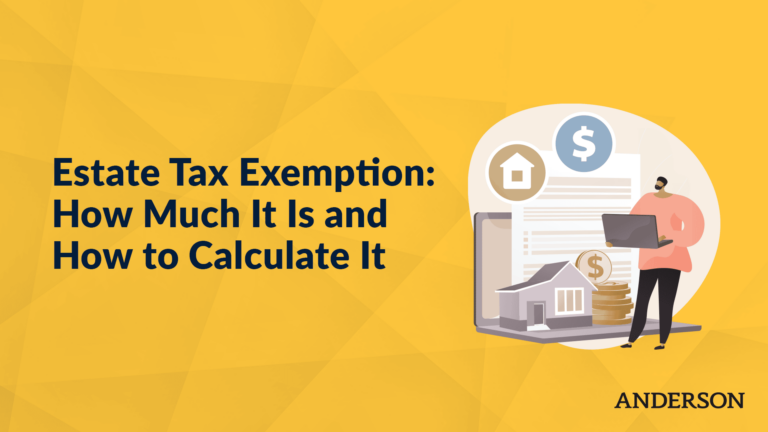Updated September 29, 2021
They always say there’s no such thing as free lunch. As it turns out, there is such a thing as a free gift, at least according to the IRS, as long as that gift is under $15k. Anything above that amount might be subject to a certain type of tax called the gift tax.
What Gifts Are Taxable?
- College Money
- House Down payments
- Cars
- Vacations
- Money More Than $15k
As it turns out, most gift-givers will not need to do or pay anything beyond filling out a federal gift tax return. That’s because the annual gift tax exclusion is not the only consideration—there is also the lifetime gift tax exemption. As long as a gift-giving taxpayer remains below this lifetime gift tax limit, their tax liability in regards to gifts given will probably be nothing.
What is a Gift Tax?
A gift tax is a federal tax on money or assets transferred to another person, even a family member, in return for nothing or something less than the gifted value in return. When we say “family members”, this does not include dependents listed on your tax return or spouses.
Even if spouses file taxes separately, the unlimited marital deduction helps them avoid gift tax on assets exchanged between the two, as long as both spouses are citizens. A gift also needs to be given while alive, which means that money bequeathed as an inheritance (even though that is a gift) will often be subjected to an inheritance tax, unless, for instance, it’s passed on to a surviving spouse.
How Much is the Gift Tax?
The gift tax is a progressive tax, which means that the gift tax rate increases as the gift grows in size. There is a $15k annual gift exclusion, but anything above that is taxed at a rate of at least 18 percent, with gifts more than a $1 million subjected to a 40 percent tax rate.
However, in most cases, individuals giving a gift beyond $15k , or even beyond $1 million, will not have to pay gift taxes because of the lifetime exclusion clause. That’s an important consideration for a taxpayer contemplating how to pass on their assets to the next generation.
The generation-skipping transfer tax (called GSTT for short) triggered when bequeathing assets to anyone 37.5 years younger is a flat 40 percent. That’s a much higher tax liability than gifting someone anything under $1 million while still alive.
It’s important to note, however, that there are still better ways to minimize your taxable estate in terms of passing assets on to children, grandchildren, or other beneficiaries.
Who Pays the Gift Tax?
The gift-giver will usually be the one paying taxes on the gift, if applicable. However, it’s important to keep in mind that if a gifted asset produces income, such as capital gain, rental income, or stock dividends, the recipient may have to pay taxes on that in the future because that’s not technically part of the gift as it’s offered.
This is why the IRS places gifts into three categories: present interest gifts, future interest gifts, and terminable interest gifts. All these different types of gifts have different ramifications that are important to discuss with a knowledgeable tax advisor. Also, keep in mind that a charitable donation is not considered a gift for the gift tax purposes.
If you’re looking for an estate planning expert, reach out to Anderson Advisors today to schedule a free consultation!
How Much Money Can You Give Tax-Free?
You can give away up to $15k per person per tax year without paying a gift tax. The good news is that if you give away more, you still probably won’t have to pay taxes on it.
The reason is that in addition to the gift tax annual exclusion of $15k, there is a gift tax lifetime exclusion of $11.58 million. Any excess dollar amount gifted beyond the annual exclusion will trigger the need to fill out IRS FORM 709, but it will also count against your lifetime exclusion of $11.58 million. This means you won’t need to pay taxes on the gift unless your gift pushes you over that threshold.

What Gifts Are Taxable?
College Money
Money gifted directly to a student beyond $15k to pay their tuition is taxable for gift tax purposes. That’s why it’s a good idea to arrange making a payment directly to the educational institution since then it will be covered for an educational gift tax exclusion.
Note that money for books, supplies, room, board, and food do not count for the educational gift tax exclusion. Check out your state’s 529 Plan to see if that might be a convenient vehicle for setting up a tax-free college fund. In most cases, you can front-load up to $75k as taxable for gift tax purposes, which may also allow you to conveniently reduce your taxable income.
House Down payments
Gifting someone a down payment for a house will, unfortunately, fall into any special gift tax exclusions, at least in terms of an annual gift. Most down payments for a home fall somewhere between 10 percent to 25 percent, so the total cash value of that amount depends on the real estate market.
Whatever is provided beyond the $15k annual exclusion will count toward the lifetime gift tax exemption of the gift giver. Thankfully, there are other strategies to avoid taxation on money gifted towards a housing down payment in excess of $15k. For example, a first-time homebuyer is allowed to tap into their tax-deferred Roth IRA if they are using that money toward a home, whereas normally that money would be subjected to steep tax liability on par with taxable income.
Cars
If the fair market value of a gifted vehicle is beyond $15k for an individual and $30k for married couples, then that car will be subject to a gift tax, and you will have to declare its fair market value on the gift tax return.
There are a few ways around this, of course, such as purchasing a vehicle under your own name, holding the title, and letting someone else use it as a gift. The vehicle could also be financed or leased, with $15k or less gifted toward payments.
Vacations
You might be wondering what kind of family vacation goes beyond $15k in fair market value or $30k for a married couple. Truth be told, longer vacations, like extended cruises, can really add up, and may easily surpass this threshold quicker than you think. Aside from that, vacations can rack up a steep bill if it includes a formal family reunion or weddings.
Money More Than $15k
As we’ve mentioned several times, $15k in cash per person per year is the upper threshold of the annual gift tax exclusion, and anything after that becomes taxable.
It’s also important to consider that some things you might not consider a gift can fall into the gift tax, such as being listed as a joint owner on a non-spousal bank account. Or, for instance, if an elderly parent decides to list you on their account for the purpose of helping them pay their finances. According to the IRS, they essentially just gifted you the entirety of cash on deposit.
What Gifts are Excluded From the Gift Tax?
Gifts between spouses are not subject to the gift tax. Medical payments made directly to the institution providing care (such as a hospital or doctor) fall into a medical exclusion. Tuition payments for a child or grandchild, paid directly to the educational institution, fall into the educational exclusion, though ancillary expenses like room and board do not. Charitable gifts, such as a donation to a nonprofit organization and political donations, are also excluded. And of course, any gifts falling beneath the upper threshold of the annual exclusion and/or lifetime exclusion are also not subjected to a gift tax.
How to File a Gift Tax
You will need to fill out IRS Form 709 with your income tax information if you gift more than $15k to any one person or $30k to any one person from married couples. Keep in mind that it’s per person, so you could give five different people $15k and not need to fill out Form 709. This form will also ask you to total your lifetime gift-giving amounts to ensure that anyone gifting more than $11,580,000 over the course of their lifetime pays the gift tax they owe.
Before giving a gift, it’s a good idea to explore legal vehicles for transferring assets that minimize your tax burden, such as a trust. An experienced accountant or tax advisor, like those at Anderson Advisors, can always help you figure out ways to pay less taxes.
What Happens if I Don’t File a Gift Tax Return?
If the IRS does not find out about a gifted asset during the course of your lifetime, it may be unearthed when your estate is audited. In this case, it might assess gift taxes for the money owed and then fees, fines, and penalties beyond that.
You may be tempted to avoid filling out IRS Form 709, especially if you feel that you will never exceed the lifetime exclusion. However, you may end up surpassing that threshold, and just in case you do, it’s good to cover your bases. This applies all the more so to individuals who know they will gift more than the lifetime exclusion. This way, the transfer of assets as an inheritance will not be impeded by surprise taxes and bureaucratic quagmires.
Explore the Legal Ways Around Gift Taxes
Most individuals will not pay a gift tax during the course of their lifetime. That’s mainly due to the nearly $12 million nature of the lifetime exclusion, but there are also legal and effective ways to avoid it entirely, such as by paying an institution directly for educational or medical expenses. Charitable and political donations are also except as gifts by the IRS.
That said, if someone is going to be gifting more than the lifetime exemption amounts, it would be best to explore legal and alternative ways of gifting assets. You can do so by scheduling a consultation with an Anderson Advisors tax expert. You also might be interested in joining our Tax Tuesdays webinar, where we explain the various opportunities available for saving money on taxes.
Bonus Video
Free Strategy Session with an Anderson Advisor
Receive a detailed risk assessment to assist in lowering problem areas that could wipe out all of your assets with one wrong move. Speak with an Anderson Professional Advisor to get your FREE Strategy Session. Limited-Time offer: FREE (a $750 value.)











